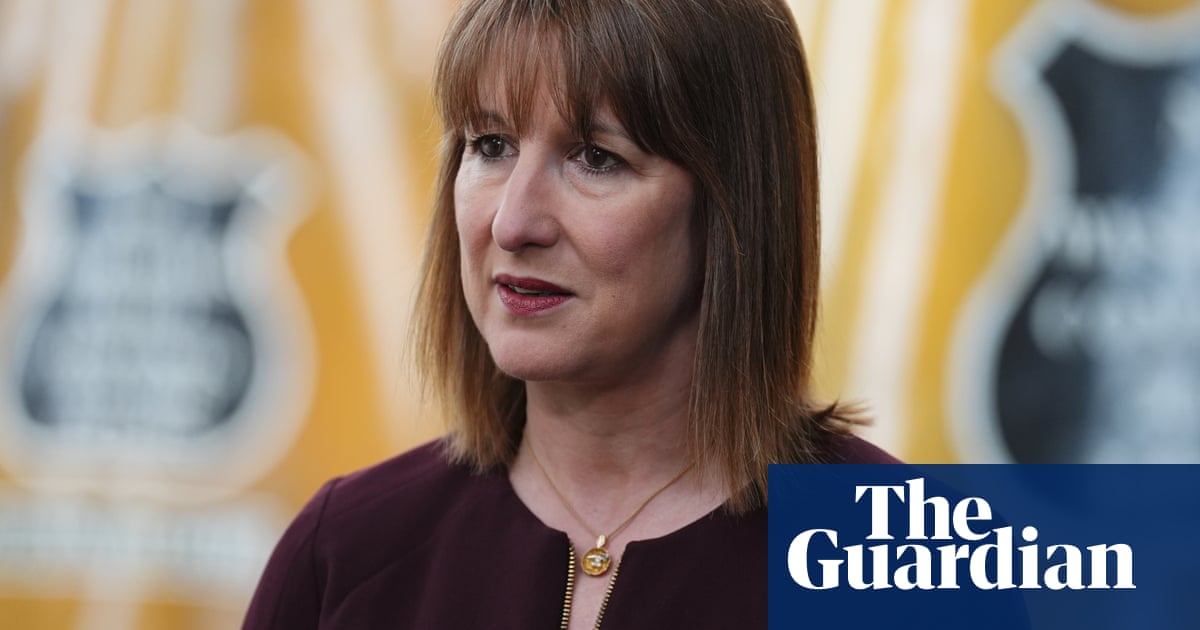Slow growth and persistent inflation will wreck Rachel Reeves’ budget plans and increase the likelihood of further tax rises in the autumn, according to forecasts by a leading economic thinktank.
The National Institute of Economic and Social Research (NIESR) said the UK was on course to suffer a long period of stagnation, cutting tax receipts and forcing the chancellor to balance the books only monthsafter a tough budget in Marchthat reduced welfare benefits.
NIESR said the problems Britain faced this year were largely of the government’s own makingrather than due to slowing global trade.
It predicted the UK economy will grow by 1.2% in 2025, down from a previous forecast of 1.5%, “amid low business confidence, high uncertainty and rising cost pressures”.
The prospect of further tax rises in the autumn was playing a bigger role in dampening business investment than the uncertainty surroundingDonald Trump’s tariff threats, it added.
“While global headwinds such as the recently imposed US tariffs are disrupting international trade, the biggest factors dragging down UK economic growth are domestic,” the report said.
NIESR said higher than expected inflation and lower growth would place the Bank of England in a difficult position ahead of the central bank’s next interest rate decision.
Threadneedle Street policymakers areexpected to cut interest rates by 0.25% to 4.25% when they meet on Thursday. But they may be concerned about inflation staying high for a longer period, limiting the number of rate cuts later in the year.
Financial markets expect at least two further cuts, while NIESR predicted there would only be one more in 2025 after a quarter point cut at the May meeting.
The thinktank’s UK economist, Benjamin Caswell, said manifesto pledges that prevented the Treasury from increasing levels of borrowing and skewed tax rises away from households to businesses were harming economic growth.
“Because of the weaker economic outlook, the government is not going to meet either of its fiscal rules,” he said.
Reeves has pledged to keep day-to-day government spending in balance while also bringing down the overall of level of debt as a proportion of national income, or gross domestic product (GDP), within the five-year parliament.
NIESR said the annual deficit, which is currently capped at £9.9bn, could rise to £62.9bn in 2029-30, forcing ministers to either increase borrowing or make further spending cuts.
Overall debt will rise from 88.8% of GDP to 89.5% of GDP under a new measure of borrowing – Public Sector Net Financial Liabilities (PSNFL) – that includes government assets to reduce the UK’s debt position.
The thinktank’s analysis, which argues that another round of budget cuts will be needed in the autumn, is likely to alarm Labour MPs ahead of a tough spending review.
Caswell said: “Restoring the very narrow headroom of £9.9bn has left a lot of firms very uncertain of where they stand come October. So if there are going to be further tax rises, firms are basically playing a wait and see game now.
Sign up toHeadlines UK
Get the day’s headlines and highlights emailed direct to you every morning
after newsletter promotion
“So they’re scaling back capital expenditures. They’re scaling back hiring. Vacancies are falling very dramatically, and we feel like there’s a good chance, given business surveys, that come October there may be another repeat of what we saw in March,” he added.
Stephen Millard, NIESR interim director, said: “The chancellor’s self-imposed and arbitrary fiscal rules have led to a situation where twice a year the chancellor has to either find further departmental savings or announce politically unpalatable tax rises.
“The uncertainty created by this leads to low investment and lower growth, the precise reverse of what the government wants to achieve. We have to rethink the fiscal framework.”
The organisation’s fiscal outlook also pointed towards rising inflation for the year, which it expects to average 3.3% in 2025 after peaking at 3.7%. Previously, the organisation had predicted it would average 2.4% for the year, with a peak of 3.2%.
It is the latest body to trim back the UK‘s economic growth amid the pressure from faltering domestic investment and the hit to global growth from US tariff policies.
Last month, the International Monetary Fundcut its UK growth forecast by 0.5 percentage pointsto 1.1% for this year.
A Treasury spokesperson said: “This government’s commitment to meeting our fiscal rules is ironclad. We saw what happens when governments play fast and loose with the public finances – it’s working people who pay the price.
“We delivered a once-in-a-parliament budget to fix the public finances and rebuild the NHS, with 2m additional appointments and waiting lists falling five months in a row, whilst protecting working people’s payslips from tax rises. Now we’re going further and faster for growth, delivering our number one mission to put more money in working people’s pockets through our plan for change.”
